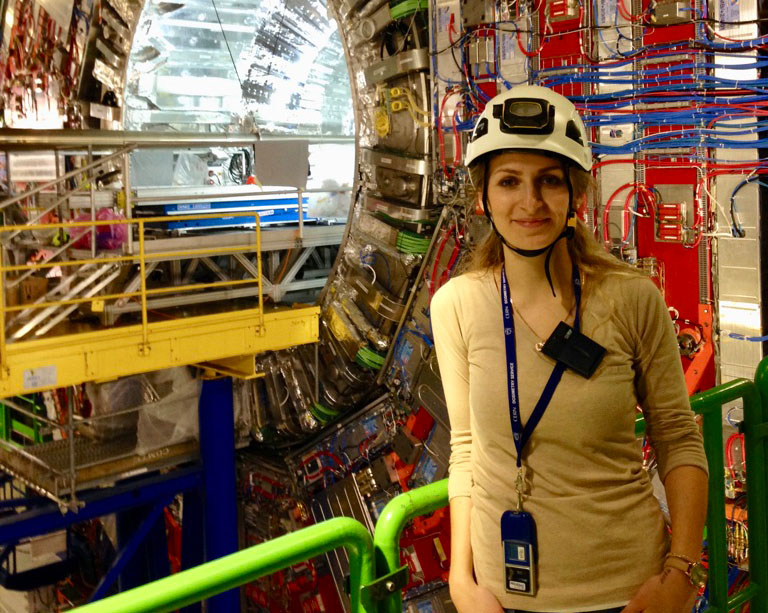High award for former BTU doctoral student at CERN
From 2013 to 2017, Olena Karacheban was a PhD student at the Institute of Physics at the Brandenburg University of Technology Cottbus-Senftenberg (BTU). Now she has received the research award for young scientists from the Compact Muon Solenoid Experiment (CMS) at the European Research Center for Particle Physics CERN, where she has been conducting research since 2015.
At BTU, Olena Karacheban worked together with scientists from the German Electron Synchrotron and Tel Aviv University on the development and application of novel detectors for measuring ionizing radiation. Her doctoral thesis was awarded the highest grade.
After completing her doctoral studies, the physicist successfully applied for a fellowship at CERN and is now conducting postdoctoral research on the CMS experiment in the research group at Rutgers University, New Jersey. CMS is a "flagship" experiment at the Large Hadron Collider (LHC). In this experiment, about 4,000 scientists from 240 institutes and universities from 40 countries are jointly researching the smallest building blocks of our universe: the elementary particles.
Olena Karacheban received the research award for her fundamental and profound contributions to the measurement of luminosity, the operation of the necessary detectors and the leadership of a multinational working group for the development of new detector technologies.
Luminosity is a key parameter of both the accelerator and the experiment. This is because: high luminosity increases the precision of all measurements and allows access to very rare processes. Accurate measurement of luminosity is crucial for determining the properties of elementary particles, such as the Higgs boson.
The former BTU doctoral student has done pioneering work in this field: both for the design, construction and operation of new detectors and in interdisciplinary working groups with physicists from the particle accelerator and other experiments. Among other things, they have adapted a method called "emittance scan" for the CMS luminosity measurement to achieve an improvement in stability and an independent linearity measurement.
The LHC is currently the most powerful accelerator with a circumference of 27 kilometers on the border between Switzerland and France near Geneva. Protons or lead ions are accelerated to nearly the speed of light and made to collide in experiments such as CMS. New particles are created in the collisions, leaving traces in the detectors from which insights into the nature of elementary particles are gained.
At the CMS and ATLAS experiments, the Higgs particle was discovered in 2012 - also with the participation of BTU students. Interaction with the Higgs particle gives other elementary particles their mass. Peter Higgs and François Englert were awarded the 2013 Nobel Prize in Physics for the theory of the Higgs particle.
Technical contact:
Dr. Olena Karacheban
T: +41 22 766 75 33
M: Olena.Karacheban(at)cern.ch

